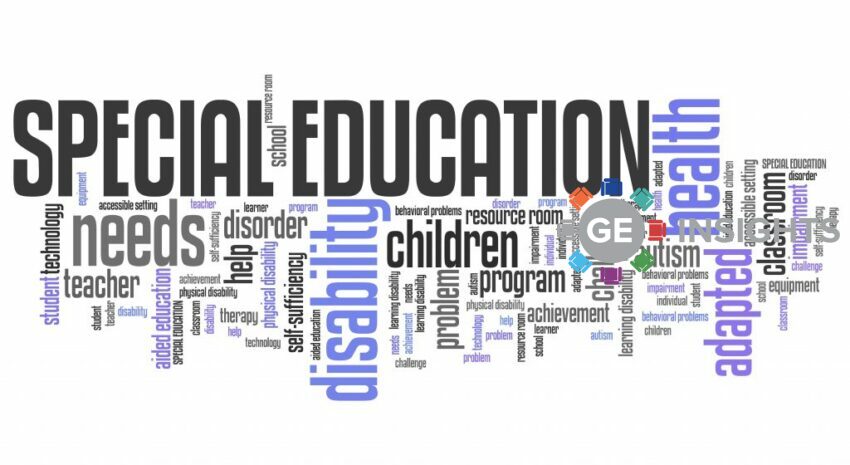ACAS works with employers and employees to improve workplace relationships. They are an independent public body that receives funding from the government [1].
ACAS states that a workplace encouraging equality, diversity and inclusion can:
- Be more successful
- Keep employees happy and motivated
- Prevent serious or legal issues arising, such as bullying, harassment and discrimination
- Better serve a diverse range of customers
- Improve ideas and problem-solving
- Attract and keep good staff
The voluntary sector should take note of the benefits of ensuring a diverse and inclusive workforce. According to the NPC think tank [2]:
“The charity sector supports a diverse range of communities, people and causes. But this diversity is not reflected in its personnel, particularly at management level. People find it difficult to talk openly about what drives discrimination and exclusion.”

Julie Dennis is Head of Diversity and Inclusion at ACAS. Julie is responsible for providing expert advice on all diversity and inclusion related matters, with the aim of building an inclusive culture that drives engagement and ultimately performance [3].
Julie strives to address the lack of diversity in charity senior leadership and the opportunities diverse leaders present.
She scrutinises organisational policies which may discourage diverse applicants. Stating the importance of awareness among senior leadership teams of their responsibility to improve representation at all levels of an organisation.
The latest ACAS annual report shows figures on the use of their advisory services across 2020/21:
ACAS helpline voice call topics
- 7.4% Diversity and discrimination
- 3% Maternity, paternity and adoption
- 1.5% Family friendly policies
Workplace training
- 12.7% Absence management and mental health
- 4.4% Bullying and harassment
- 11.2% Equality, diversity and inclusion
In-depth advisory meetings
- 8.4% Absence management and mental health
- 0.8% Bullying and harassment
- 5.4% Equality, diversity, and inclusion
In-depth advisory telephone calls
- 6.8% Absence management and mental health
- 3% Bullying and harassment
- 5.2% Equality, diversity, and inclusion
Clearly, there is a level of acknowledgement and interest by employers of the need to better promote inclusive workplaces and diverse workforces. ACAS are keen to educate and develop employers on their concerns regarding diversity and inclusion.
Ensuring an Inclusive Workplace
Equality: Equality in the workplace means equal job opportunities and fairness for employees and job applicants. Employers must not treat people unfairly because of reasons protected by discrimination law.
Diversity: Diversity is the range of people in your workforce. For example, this might mean people of different ages, religions, ethnicities, people with disabilities, and both men and women. It means valuing these differences.
Inclusion: An inclusive workplace means everyone feels valued at work. It lets all employees feel safe to come up with different ideas, raise issues and suggestions of doing things differently from how they’ve been done before.
Diversity and Inclusion in Senior Leadership Roles in Voluntary Sector
Julie reported that there is a significant lack of diversity and inclusion in senior leadership roles across the voluntary sector. 41% of charity trustees are female and 15% of trustees are from ethnic minority backgrounds.
According to AVECO, 16% of voluntary sector CEOs identified as disabled, with disabled people representing 20% of the wider workforce [4].
Women make up 54% of senior managers but 68% of the whole charity workforce. The proportion of female chief executives in charities increased from 30% in 2017 to 40% in 2020. Although there has been some improvement in recent years on gender inclusion in the sector, other groups are still underrepresented.
These figures show that more needs to be done in the voluntary sector to recruit a more diverse workforce and to open more avenues for career progression for underrepresented groups once they have joined the sector.
Essential Practices for Diverse Recruitment
Julie advised that when looking to hire new staff, employers should advertise in at least 2 different places to reach a wide range of people from different backgrounds.
Additionally, when posting a new job advert employers should also promote that as a company, they strongly value equal opportunities. Adverts should state that they welcome applicants from:
- Anyone who believes that they meet the essential requirements of the job
- Anyone under-represented in society
Employers should always ensure that they work hard to avoid discriminating during the hiring process. There should be an awareness of the impact of language used in job posts so that there are no invisible barriers deterring people from applying to a position.
If positive action is taken to promote diversity and inclusion throughout the recruitment process, employers should be able to demonstrate that the process has been thoroughly thought through and not just done for the sake of appearing inclusive.
Mangers ought to be trained on skills including:
- Using the job description and person specification to choose the best applicants
- Having an inclusive attitude
- Avoiding making decisions based on what they think or believe about a person because of their characteristics
Making a Difference
It is essential that senior leadership have regular conversations with the workforce to discuss what can be done to ensure that employees have what they need to perform at their best.
Leaders should approach the whole workforce with compassion while making themselves available to receive complaints and concerns.
There should be an ongoing mission to stay up to date and educated on matters affecting inclusion and equality in the workplace. It is the responsibility of senior leaders to not slack on these matters.
It is important that there is a culture of authenticity in the workplace where people actively apologise if they get it wrong. This lends itself to promoting allyship in the workplace.
Allyship is:
- A lifelong process of building relationships based on trust, consistency, and accountability with marginalised individuals and/or groups of people
- An opportunity to grow and learn about ourselves, whilst building confidence in others
- Amplifying the voices of people from minority groups.
Allyship is not:
- A badge of honour or a title
- A vehicle to “save” or “liberate” under-represented groups
- An expectation to be praised for your actions only being an ally when there is an under- represented audience using your own voice or power at the expense of others
- Only being an ally when there is an under- represented audience
- Using your own voice or power at the expense of others
Effective allies:
- Lift others up by advocating
- Share growth opportunities with others
- Recognise inequality and the systems which foster them, and realise the impact of micro-aggressions
- Believe and appreciate underrepresented people’s experiences
- Listen, self-reflect and change
Julie urges third sector organisation leaders to access the resources created by ACAS if they feel that they want to arm themselves with the best tools to combat underrepresentation in their workforces.
Additionally, Julie has explained ways of promoting more diverse recruitment. Employers should always ensure that they work hard to avoid discriminating during the hiring process whilst also focusing on implementing structures that promote the creation of allyship amongst the workforce.
[1] ACAS
[2] NPC, Diversity, Equity, and Inclusion
[3] Dennis, Julie. 2021. Head of Diversity and Inclusion, ACAS
Register FREE to access 2 more articles
We hope you’ve enjoyed your first article on GE Insights. To access 2 more articles for free, register now to join the Government Events community.
(Use discount code CPWR50)




